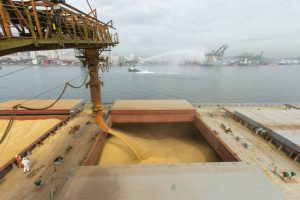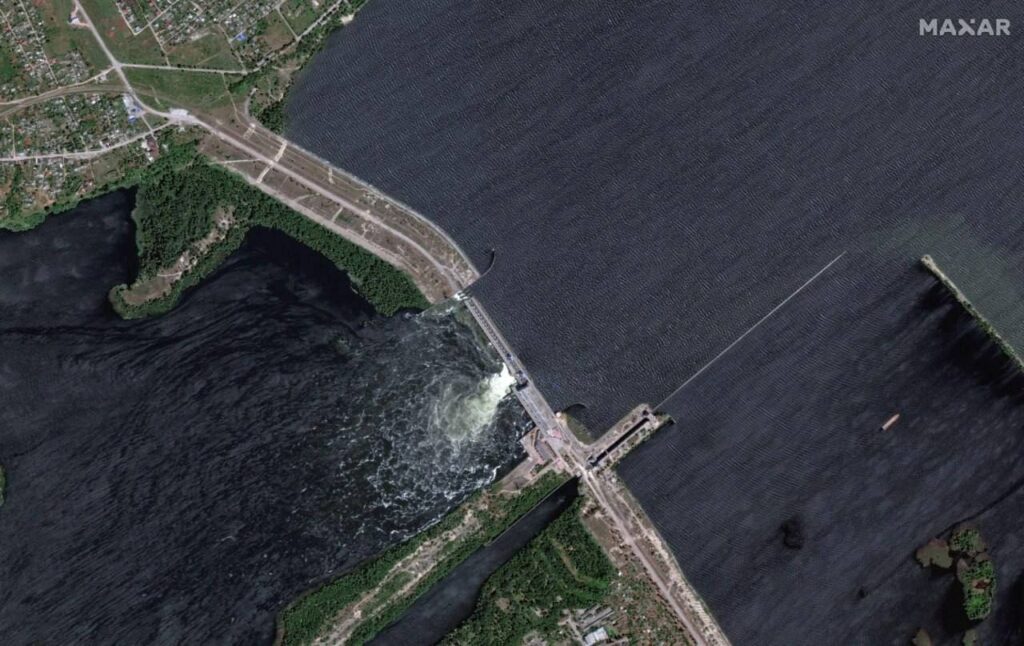How the order of Odesa Regional Military Administration on grain export affected the market

The first Order of the Odesa Regional Military Administration was aimed at combating shady schemes during the export of Ukrainian grain. But in fact, he made the work more difficult, and also, among other things, provoked the idleness of the fleet. Various agrarian associations also appealed to the President of Ukraine to cancel this order. USM analyzed why this happened and what are the options for solving the problem.
How did it all start
In mid-August, order No. 19 “On some issues of financial discipline in the conditions of the legal regime of martial law” of the head of the Odesa Regional Military Administration and the commander of the “Odesa” troop group was published.
The purpose of such an order was called opposition to trade in “gray” grain. Before that, Oleg Kiper, the head of Odesa Regional Military Administration, said that the share of grain of unknown origin in exports from Odesa reaches 30-40%.
“Ships (barges) will be loaded from now on only if a preliminary analysis of the legality of the origin of the grain is carried out. All customs declarations must be registered before the export goods are loaded. In this way, the Odesa Regional Military Administration strengthens discipline, accounting and reporting in the field of foreign economic activity in the conditions of the legal regime of martial law,” Oleg Kiper said in a message.
What does the Order require?
As the All-Ukrainian Agrarian Council explained, the provisions of the document require exporters to submit a customs declaration 10 days before loading the vessel.
In order to fill out such a declaration, the seller must prepare the necessary volume and stockpile the grain in the port, as well as be sure that the grain of the volume and quality specified in the declaration will arrive on the ship.
“In practice, it is not possible for most farmers to fulfill such conditions. Today, producers and traders do not store grain in ports, so as not to expose people, infrastructure and goods to the danger of shelling from the Russian side. That’s why most sellers now work “from wheels” – the loading of the ship is mainly carried out immediately from the car to the ship. At most, the ports on the Danube do not have enough places to store such volumes of grain, which are subject to preliminary declaration,” explained the press service of the Agrarian Council.
It is also interesting that the order is valid only on the territory of Odesa region. The Ukrainian Grain Association (UGA) noted that this significantly limits the activity of business entities that export cargo through the Odesa Customs.
At the same time, the new rules for customs clearance and the fulfillment of tax obligations do not apply to business entities that use other logistics routes, for example via railways and road transport through customs and border crossings in the west of Ukraine.
“Therefore, the order can distort competition at the industry level in the field of transportation in the mode of export of goods, and at the same time it introduces competitive obstacles in the transportation of grain cargoes by sea transport through the ports of Odesa and other means of transport when crossing the state border in the Odesa region,” explained the UGA.
The reaction of agrarian associations
Initially, various agrarian associations decided to appeal directly to the Odesa Regional Military Administration with a request to make changes or cancel the order, which complicates the work of grain exporters and even led to the stoppage of grain loading in the Danube ports.
However, the call was not heard, the order continued to apply, and already in September 2023, farmers were forced to turn to the President of Ukraine, Volodymyr Zelenskyy, as well as to the Antimonopoly Committee and the State Regulatory Service.
In its appeal, the Ukrainian Grain Association emphasized that the order, instead of combating shady schemes, actually made the work of leading grain exporters more difficult.
“Yes, grain shipments through the Danube ports have stopped, the fleet is idle, and farmers are suffering losses. In addition, this Order has negative consequences for the country’s budget and its reputation as a reliable supplier of food to the world market. In addition, the legal necessity of its adoption is not substantiated in the order. There is also no explanation as to how the execution of the order will stabilize the operation of civil shipping in the Black Sea,” the association emphasized.
UCAB noted that representatives of the associations are worried about possible consequences, in particular, the stoppage of exports. And individual provisions of the order are not at all possible to fulfill from the point of view of legal business.
“Also, it actually makes it impossible to load ships using the direct option (when the ship is loaded immediately from the grain truck). In fact, such an order may in the future become a basis for the heads of individual regions to establish their own customs, tax and any other regulation, which will be different from the national one. This will weaken the control and management of the state in areas for which, according to the law, the central authorities are responsible,” the appeal added.
It is important to note that the document of the order was also reviewed and analyzed by lawyers of the international law firm Interlegal. This analysis showed that the order provides for additional documentary requirements for exporters from the side of the controlling authorities when registering cargo in the export mode.
But the customs legislation, in turn, does not provide for such requirements. Moreover, the legislation does not directly grant the military command and military administration the authority to implement new procedures, deadlines for customs clearance of goods and fulfillment of tax obligations by business entities.
Options for solving the problem
USM reached out to Octopod Shipping Company co-owner and CEO Dmitry Sichkar for a comment. In his opinion, it turned out that the order created problems not for those who want to implement shady schemes, but for those who want to honestly export their raw materials abroad.

“On the one hand, the farmers are right here, because in such difficult conditions it is impossible to make drastic decisions that complicate the economic situation of many market participants. On the other hand, there is a certain logic in this Order, if it is implemented in practice in a different way, which would be more frugal, transparent and understandable for farmers,” Dmytro Sichkar believes.
According to the expert, if the state creates conditions for the processing of grain crops and the shipment of products in the form of flour, groats, butter and generally finished products, this will have a multi-level positive effect.
“First of all, we will create added value. Secondly, the number of jobs for people who will be involved in the processing process will increase. In the end, this will give a powerful impetus to the global development of the country’s economy as a whole. Today, we send raw materials – thus, we show ourselves as a raw material appendage. At some stages it was profitable. We sent a lot of grain, so agricultural enterprises made good money at the expense of these scales, and the state received corresponding tax revenues. But we need to develop further,” emphasizes the CEO of Octopod Shipping Company.
According to him, there is a certain logic in this order. Yes, if Ukraine restricts the export of grain, it will be possible to encourage its processing and shipment of the finished product. This will help to increase the added value and achieve a better work result both for the producers themselves and for the state as a whole.
“But this initiative should not be about “bans”, but about “encouraging” manufacturers to produce products with greater added value. It is necessary to develop and provide certain compensatory instruments at the state level (subsidies, real simplification of doing business, preferential lending, grants, etc.). In the rest, it should encourage business as a whole to develop, deepen domestic production and processing, enter new markets with more expensive products, and not resist and look for shady schemes,” concluded Dmytro Sichkar.
Another option for solving the problem is to cancel this order, as demanded by the agricultural associations, but currently there are no official responses to previous appeals.





